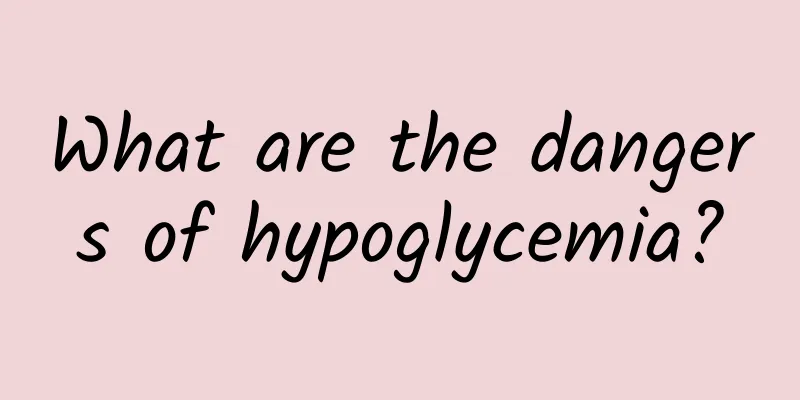What are the dangers of hypoglycemia?

|
The problem of hypoglycemia cannot be ignored, because its impact is very large. It may cause common symptoms such as hunger, dizziness, palpitations, pale complexion, cold sweats, etc. Some may also induce arrhythmia and angina pectoris. 1. Hypoglycemia hemiplegia The mechanism of occurrence is still unclear The occurrence mechanism of hypoglycemic hemiplegia is still unclear. It is generally believed that there are the following possibilities: most elderly people have cerebral arteriosclerosis and stenosis. When blood sugar is normal, the blood supply areas of these narrow arteries can still obtain the energy (blood sugar) necessary to maintain their normal functions. However, when hypoglycemia occurs, the excitability of the sympathetic nerves increases, causing spasm and contraction of cerebral blood vessels, resulting in an unbalanced blood supply to various parts of the brain. Those parts with relatively severe ischemia will experience functional disorders, causing hemiplegia, etc. Glucose is the main energy source for brain cell activity. Severe and persistent hypoglycemia can inhibit the cerebral cortex, cause brain dysfunction, and even coma. 2. Diabetic patients are well aware of the dangers of high blood sugar and take it very seriously, but they often do not pay enough attention to the severity of hypoglycemia. In fact, the harm of hypoglycemia is no less than that of hyperglycemia, and sometimes even more dangerous. Mild hypoglycemia can cause sympathetic nerve excitement, resulting in symptoms such as hunger, dizziness, palpitations, trembling hands, pale complexion, cold sweats, weakness, etc.; central nervous system symptoms may also occur. 3. There are usually five manifestations: 1. Changes in consciousness; 2. Abnormal behavior; 3. Dizziness and tremors; 4. Epileptic seizures; 5. Sudden hemiplegia. Not only that, hypoglycemia in the elderly can easily induce complications such as arrhythmia, angina pectoris, myocardial infarction and cerebrovascular accident, so you should be especially careful. Acute hypoglycemia can also cause cerebral edema, and long-term chronic hypoglycemia can lead to intellectual decline and accelerate the process of dementia. |
<<: What is the difference between anal polyps and hemorrhoids?
Recommend
Formaldehyde poisoning reactions and hazards
If the formaldehyde poisoning is severe, the harm...
Can bloating cause chest tightness? Causes of bloating
Flatulence is a relatively common disease. This d...
What removes moisture?
If dampness is not eliminated, no matter how many...
What is the reason for the long hard mass in the left lower abdomen being oblique?
People will always encounter some diseases in lif...
What are the recipes for making wine with traditional Chinese medicine?
As the pace of life in modern society continues t...
What are fat particles on the scrotum?
The most common cause of fat particles in the scr...
Knowledge on prevention and treatment of infectious diseases
There are many common diseases in life. When trea...
Will the leucorrhea become thicker if pregnancy is successful?
For women, after successfully becoming pregnant, ...
What kind of wash should be used for pseudo-condyloma acuminatum
Everyone knows that pseudo-condyloma acuminatum i...
Newborn baby dancing and fussing
We all know that newborn babies are very quiet an...
What are the treatments for constipation in the elderly?
Constipation is a common clinical disease, which ...
What fruits should I eat if I have a bad heart? Diet is the key
Many middle-aged and elderly people have heart pr...
What to do if pregnant women have hives
Urticaria is a skin disease with a very complicat...
What is otolithiasis? Causes of otolithiasis
The problem of otolithiasis cannot be ignored. It...
What medicine should I take for pain on the left side of my lower abdomen?
People should understand that pain on the left si...









